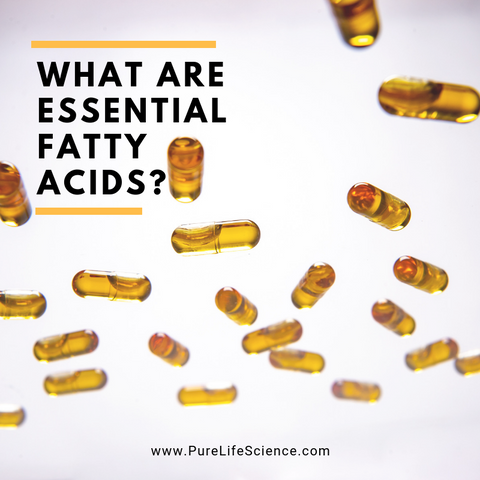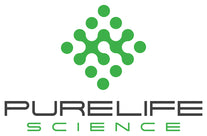What are Essential Fatty Acids (EFAs)?

Our bodies only need 2 essential fatty acids (EFAs) from our diet, as they cannot be synthesized by our systems; however, as of late, other fatty acids are incorrectly being labeled as essential. There are 2 non-essential fatty acids that you will hear about in advertising and on health forums and blogs: DHA (Docosahexaenoic Acid) and EPA (Eicosapentaenoic Acid). These are NOT essential parts of our diet.
So why the confusion? All of this started after a very poorly done Danish study on Greenland Eskimos determined that they had very little heart disease, concluding it was due to their high fish diet. In reality, they died of other causes before reaching an age that would typically see the development of heart disease, and, as it turns out, they don’t have a diet high in fish (McCoy, 2014) - they eat seal (a mammal) as their main source of protein.
Additionally, there was evidence that 1/3 of the population cannot make enough DHA/EPA, which can be found in fish; however, there has been a gross overestimation of the amount of EPA/DHA we need in our body (Barceló-Coblin et al, 2008). In fact, the body makes as much as it needs and we need very little EPA/DHA (Barceló-Coblin et al, 2008). Humans have been living for centuries in areas where there are no reliable sources of fish and have done quite well. Again, what we see here is a flawed study that made conclusions that stuck with us through time.
So all you need are the 2 essential fatty acids, 18 carbons long with 1 (Omega-6) and 2 (Omega-3) double bonds in them. They must be consumed in their raw, unprocessed form from plant sources or mammals that eat those plant sources. Pure Form Omega® Natural formulation gives you the optimal ratio of these 2 EFAs in their raw form (Cold-Pressed under a Nitrogen Blanket), leading to optimal cellular function and better athletic performance with almost no recovery time.
References
Barceló-Coblin, G. Murphy, EJ. Othman, R. Moghadasian, MH. Kashour, T. Friel, JK. (2008). “Flaxseed oil and fish-oil capsule consumption alters human red blood cell n-3 fatty acid composition: a multiple-dosing trial comparing 2 sources of n-3 fatty acid.” The American Journal of Clinical Nutrition, 88 (3): 801-9.
McCoy, T. (2014). Fish oil may not prevent heart disease after all. Retrieved from https://www.washingtonpost.com/news/morning-mix/wp/2014/05/16/the-entire-fish-oil-industry-may-be-premised-on-a-flawed-study/?utm_term=.f08809d062be
Pawlosky, RJ. Hibbeln, JR. Novotny, JA. Salem, N Jr. (2001). “Physiological compartmental analysis of alpha-linolenic acid metabolism in adult humans.” Journal of Lipid Research, 42 (8):1257-65.
